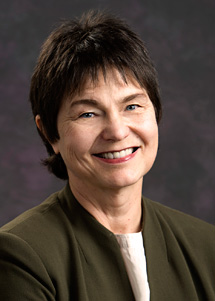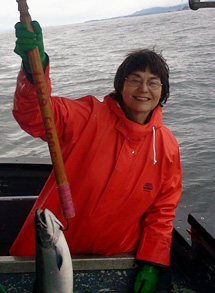
By Andrew Cohen
Suzanne A. Scotchmer, a professor of law, economics, and public policy at the University of California, Berkeley, and an internationally renowned economist, died Thursday, Jan. 30, in Berkeley of intestinal cancer. She was 64.
Scotchmer made major contributions to applied economic theory, in particular club theory, evolutionary game theory, and models of innovation with an emphasis on patents and other incentives for research and development. Using the techniques of economics to clarify legal thinking and reasoning, her work influenced the design of public policies on major intellectual property issues.
Scotchmer significantly advanced club theory, which examines the benefits and value of goods and services when shared by club members (such as citizens in a locality or associates in an organization). Her research showed how bundling land with club membership created fundamentally different economic outcomes than membership in more conventional clubs. Within game theory, her study of attitudes toward risk that arise from evolutionary forces helped determine whether certain risk strategies could be understood as rational behavior. She also helped define patent law’s breadth of protection and optimal mechanisms for supporting research and development.
“Suzanne was particularly inspirational as one of very few women writing in the field of theoretical economics,” said Gillian Lester, dean of the School of Law. “Friends, colleagues, and students across the campus and across her disciplines shared a deep appreciation for her tirelessly creative mind, enthusiasm for intellectual engagement at the highest level, and preternatural ability to see to the heart of a complex problem immediately and describe it with clarity and insight.”
Scotchmer was born on Jan. 23, 1950, in the small fishing village of Pelican, Alaska. Soon after earning her undergraduate degree in economics from the University of Washington in 1970, she came to UC Berkeley and earned an M.A. in Statistics (1979) and a Ph.D. in Economics (1980).
She began her academic career as an economist at Harvard, serving as assistant professor from 1981 to 1985 and associate professor from 1985 to 1986. Scotchmer then returned to Berkeley to join the School of Public Policy faculty, and later also became a professor of economics in 1995 and a professor of law in 2008.
“Suzanne provided us with a model of how to combine economic thinking with public policy analysis,” said Henry Brady, dean of the Goldman School of Public Policy. “She had the gift of being able to get at the fundamental issues in any area she studied, and she constructed elegant and parsimonious models that shed light on the mechanisms at work in these areas. Her accomplishments are extraordinary.”

Scotchmer held teaching or visiting appointments at many distinguished institutions, including Harvard, UCLA, New School of Economics, Stockholm School of Economics, University of Auckland, Tel Aviv University, and University of Paris (Sorbonne). She also held research fellowships at Yale and Stanford and was a visiting scholar in 10 different countries.
Joshua Gans, an economist and professor at the University of Toronto’s Rotman School of Management, called Scotchmer “one of the most significant figures in applied economic theory over the past few decades.” Gans credited her for helping scholars see innovation not as a once-off event, but as a cumulative event where innovations combine with one another to become a ladder of increasing improvements. “I tried to count the number of papers I have written starting with Suzanne’s baseline model and I lost count,” he wrote on the blog Digitopoly.
Scotchmer provided extensive advice to U.S. policymakers as a member of multiple National Academy of Sciences panels, a research associate at the National Bureau of Economic Research, a consultant to the U.S. Department of Justice Antitrust Division, and a scholar in residence at the U.S. Court of Appeals for the Federal Circuit. She also served as an associate editor of five economic journals.
Scotchmer’s seminal 1991 paper “Standing on the Shoulders of Giants” provided the first rigorous analysis of how patent systems should allocate rewards when multiple investors develop a shared technology.
Her 2004 book Innovation and Incentives drew acclaim from noted legal theorist and economist Richard Posner, now a judge on the U.S. Court of Appeals for the Seventh Circuit, and renowned game theorist Jean Tirole. Posner called it a “rigorous and lucid synthesis of the economics of innovation and the law of intellectual property” that was “packed with useful information, penetrating critique, and concrete, practical, and important proposals for legal reform.”
In 2013, the University of Washington honored Scotchmer at its economics graduation ceremony with the department’s annual Distinguished Alumnus Award.
Scotchmer is survived by her partner Stephen Maurer of Berkeley, her brother Alan Andersen of Sitka, Alaska, her niece Greta Andersen of Sitka, and her nephew Jaycen Andersen of Sitka.
The family will hold a private memorial service in Alaska and requests that in lieu of flowers, memorial gifts can be made to the American Cancer Society. An opportunity for Scotchmer’s UC Berkeley colleagues to gather and honor her life will be announced at a later date.